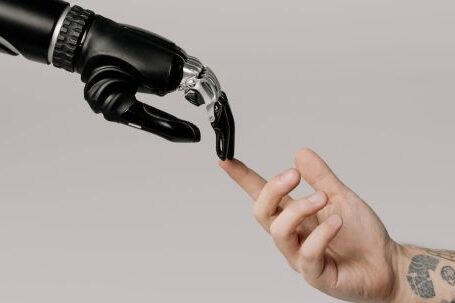Artificial Intelligence (AI) has become a buzzword in recent years, capturing the attention of industries and individuals alike. It has the potential to revolutionize the way we live and work, making processes more efficient and enabling us to achieve new heights of innovation. In this article, we will explore the various ways in which AI is shaping the future of innovation.
Enhancing Efficiency
One of the key advantages of AI is its ability to enhance efficiency in various domains. By automating repetitive tasks and analyzing vast amounts of data in real-time, AI systems can significantly reduce the time and effort required for complex processes. For example, in the healthcare industry, AI-powered algorithms can analyze medical images more accurately and quickly than human experts, leading to faster diagnosis and treatment.
Improving Decision Making
AI can also improve decision making by providing valuable insights and predictions based on data analysis. Machine learning algorithms can detect patterns and trends that humans may overlook, enabling organizations to make more informed and strategic decisions. This is particularly evident in the financial sector, where AI algorithms can analyze market data and make predictions about stock prices, helping investors make better investment choices.
Driving Innovation in Product Development
AI is driving innovation in product development by enabling the creation of smarter and more personalized products. Through machine learning algorithms, AI systems can understand user preferences and behavior, allowing companies to develop products that cater to individual needs. For instance, AI-powered virtual assistants can learn from user interactions and provide customized recommendations, enhancing the user experience and driving customer satisfaction.
Transforming Customer Service
AI is transforming customer service by providing faster and more efficient support. Chatbots, powered by AI, can instantly respond to customer queries and provide solutions round the clock. This not only improves customer satisfaction but also reduces the workload for customer service representatives, allowing them to focus on more complex tasks. Furthermore, AI algorithms can analyze customer feedback and sentiment to identify opportunities for improvement, leading to continuous enhancement of products and services.
Enabling New Forms of Creativity
Contrary to popular belief, AI is not limited to automation and data analysis. It can also enable new forms of creativity and innovation. Through the use of generative models, AI systems can generate novel ideas, designs, and artworks. This opens up new possibilities for artists, designers, and innovators, as AI can help them explore uncharted territories and come up with unique solutions to complex problems.
Promoting Sustainability
AI has the potential to promote sustainability by optimizing resource utilization and reducing waste. Through data analysis and predictive modeling, AI systems can identify inefficiencies in energy consumption, transportation, and manufacturing processes. By pinpointing areas for improvement and suggesting optimization strategies, AI can help companies reduce their environmental footprint and contribute to a more sustainable future.
Conclusion: Embracing the Future
In conclusion, AI is undoubtedly the future of innovation. From enhancing efficiency and improving decision making to driving product development and transforming customer service, AI has the potential to revolutionize numerous industries. Moreover, AI can enable new forms of creativity and promote sustainability, further pushing the boundaries of innovation. As we embrace the opportunities that AI brings, it is important to ensure ethical and responsible use, and to continue exploring the potential of this transformative technology.





